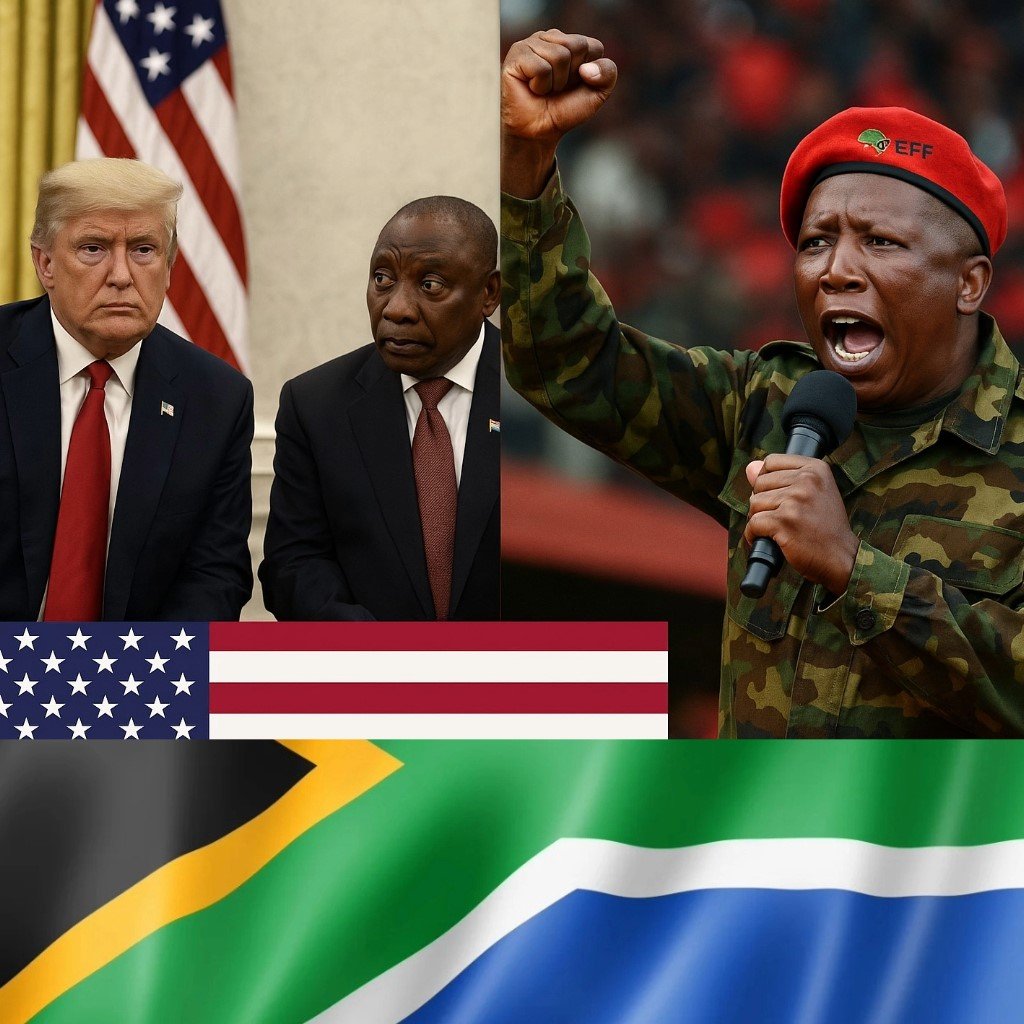Image created by AI
Potential U.S. Sanctions on Malema and Zuma: Fallout from "Kill the Boer" Chant and South Africa's Image
The controversial chant "Kill the Boer" has long sparked debate within South Africa, but its repercussions are now resonating on the international stage, potentially affecting diplomatic relations between South Africa and the United States. Terence Corrigan, a project manager at the Institute of Race Relations (IRR), expressed concerns about the chant’s negative impact on South Africa's global image, especially following a recent meeting between U.S. President Donald Trump and South African President Cyril Ramaphosa where the chant was discussed.
During this critical engagement, a video of Economic Freedom Fighters' leader Julius Malema chanting "Kill the Boer" was showcased, drawing immediate concern from President Trump about the propagation of hate speech within South African parliament settings. Trump’s reaction encapsulates a broader anxiety that such expressions could exacerbate the perception of South Africa as a volatile society, battling with high crime rates and political extremism.
Although the South African Equality Court ruled that the chant does not constitute hate speech or incite violence, its international implications are far-reaching. The visual of Malema in military regalia, leading chants in a packed stadium, projects an image of radicalism and militancy that can alarm international onlookers and potentially deter foreign investment and tourism, critical components of South Africa's economy.
Political repercussions could also be severe. Corrigan speculates that, given America's stance on corruption and problematic political figures, targeted sanctions could be imposed on Malema and also Jacob Zuma, former President and leader of the MK party. Such sanctions would serve as a "warning shot" to South Africa without directly implicating the current government led by President Ramaphosa.
On the other side, Ntsikelelo Breakfast, a political analyst from Nelson Mandela University, argues for the sovereignty of South African internal politics, highlighting the diverse views within its multiparty democracy. Breakfast defends Malema, suggesting that the EFF leader has already faced accountability for his actions and that any external punitive measures would be unjust.
In defense, Malema has denied allegations that his chants support notions of white genocide, criticizing the U.S. for portraying a misleading narrative about South Africa's internal issues. This back-and-forth underscores a larger discourse on the balance between freedom of expression and responsible politicking in a racially and culturally complex society like South Africa.
As these discussions unfold, the global community watches closely. The outcome could redefine not only U.S.-South African relations but also how political expressions are interpreted and managed on the world stage.










